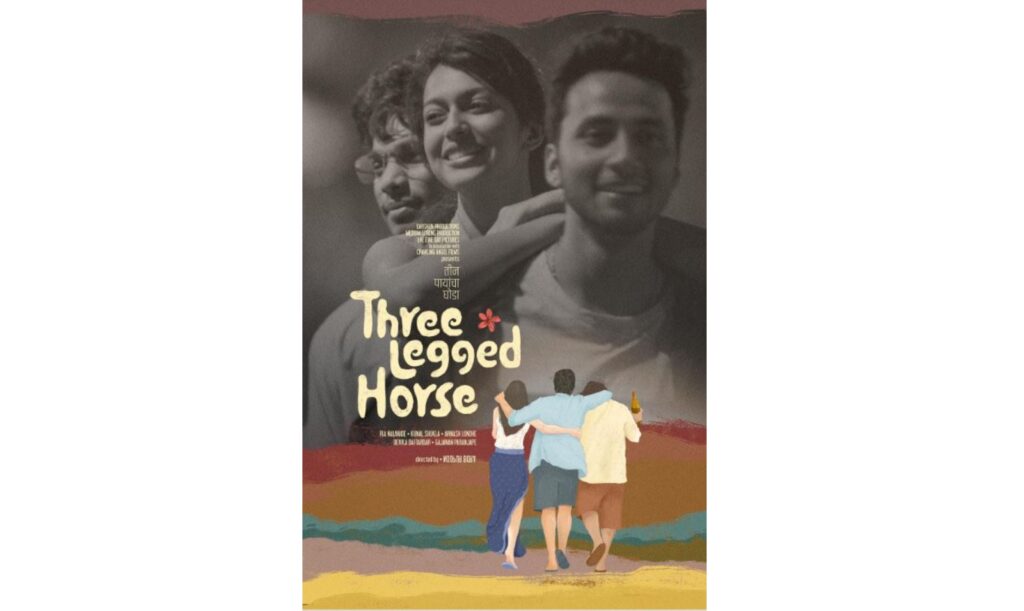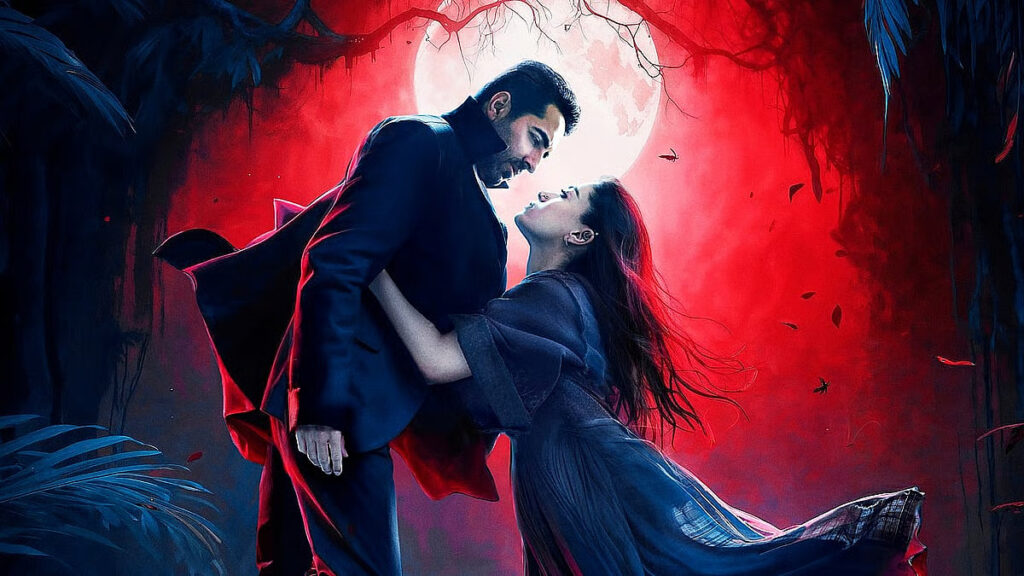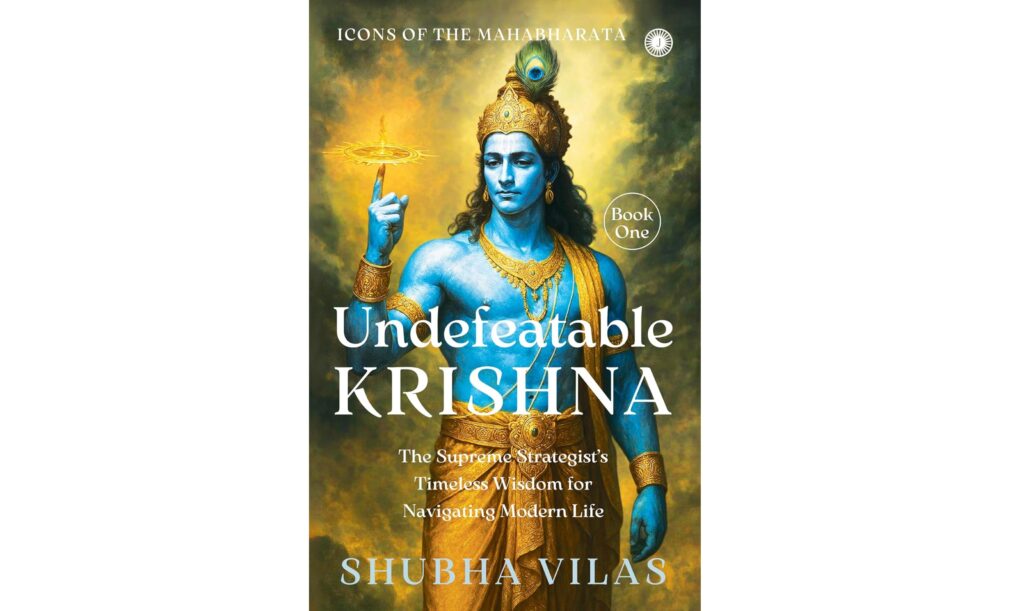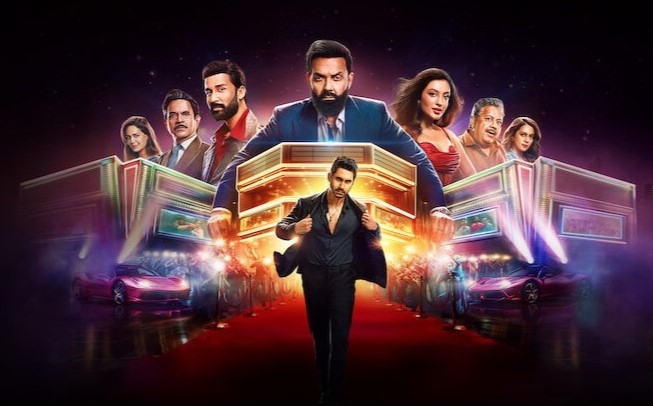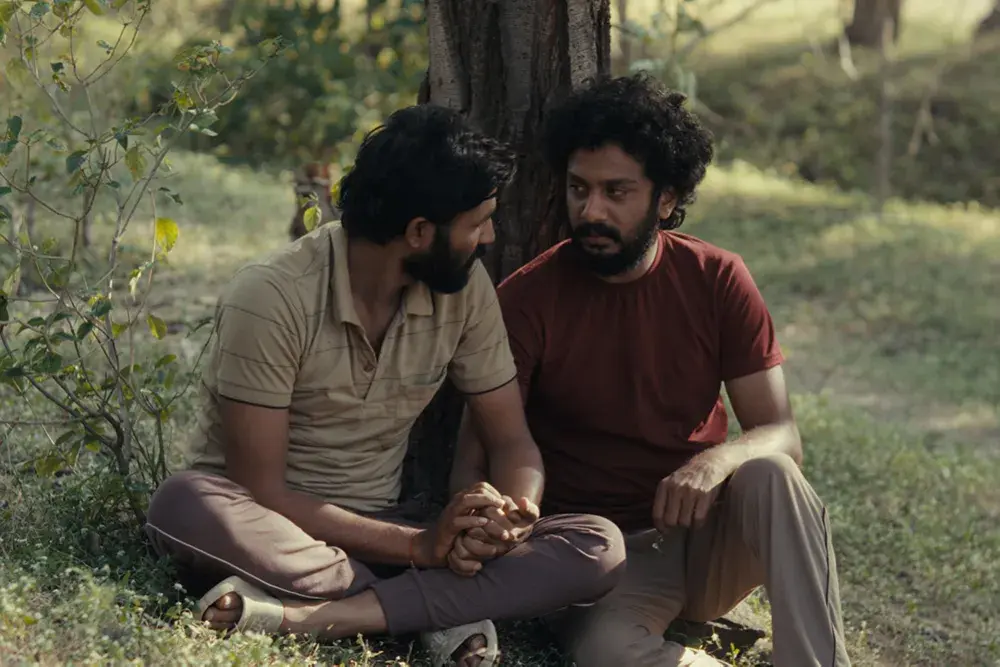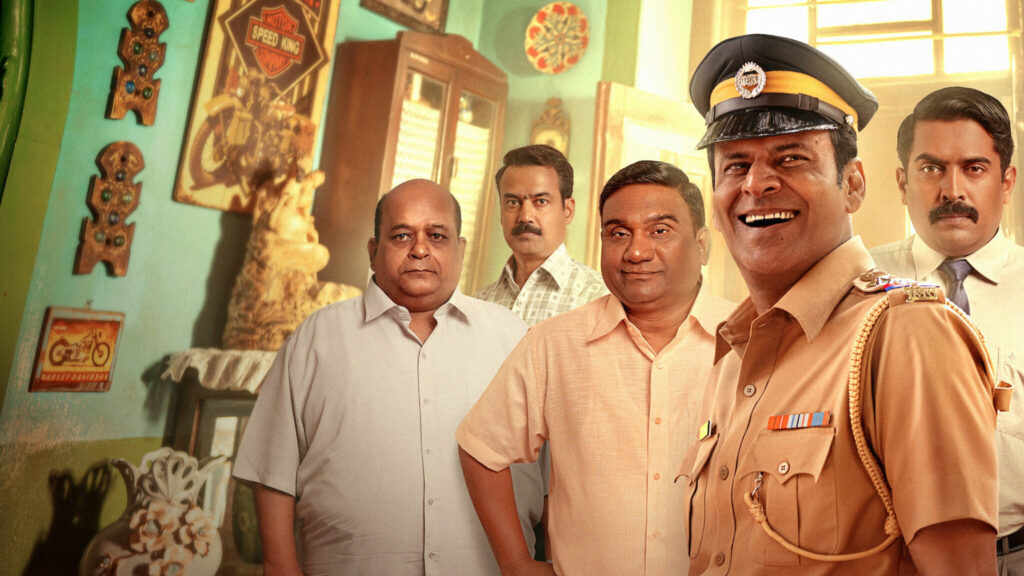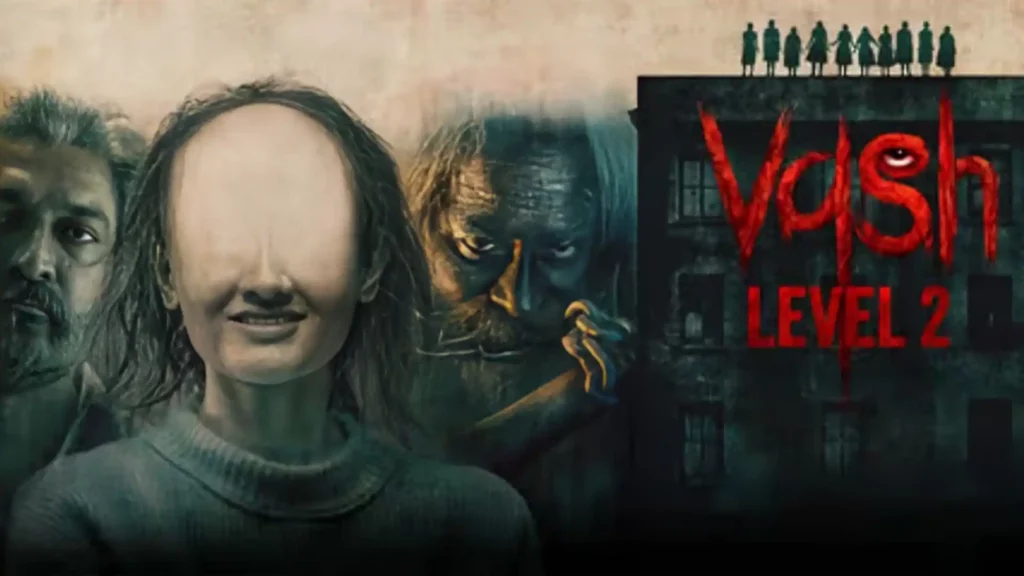Storyline: Teen Paayancha Ghoda (English title: Three Legged Horse) takes place in 2003 in Pune. Adnan (Kunal Shukla), a carefree youngster, has been flunking his 12th standard exams. He has already lost two years in the process. His girlfriend Chandrika (Ria Nalavade), who is even more carefree, continues to support him despite his failure.
Adnan’s father is in the rehabilitation centre for alcoholism. He isn’t strict with Adnan and doesn’t have any grudges for him failing in exams. But Adnan’s nana (Gajanan Paranjpe), who is a retired IPS (Indian Police Service) officer and with whom he lives, is super strict and has given an ultimatum to him to pass his exams this year.
Chandrika comes up with a plan to get a fake marksheet created for Adnan. For this, she contacts Rathore (Avinash Londhe), who is from the same age group. The purpose of creating a fake marksheet germinates into an unusual friendship between the three youngsters. But where will their wrong path lead them eventually?
Review: Teen Paayancha Ghoda is from the makers of the brilliant drama Amaltash. This film also falls in the unconventional zone like the earlier one but it’s hugely different both in terms of the storyline and its treatment.
It deals with a simple storyline but it’s nowhere narrated and presented in a conventional or straightforward way. Noopur Bora and Yogesh Vinajay Joshi have creatively narrated the tale in a way that you discover it in a novel way and through little details. The flashback to 2001 on quite a few occasions is also smartly done.
The film shows the three central characters indulging in an illegal activity. However, they are not shown as bad people. They are going through the wrong path only out of necessity. Of course, the film doesn’t justify their act but you somehow start liking them, especially Rathore. The organic way in which friendship develops between the three character plays a major role in it.
Suhas Desale and Rushi Tambe’s camerawork completely goes with the nature of the film. It is more like a glimpse into the world of the three youngsters. The same unconventionality is seen in the editing (Makarand Dambhare and Suhas Desale) and background score (Chlkwrk).
The performance of the three youngsters also plays a major role in making the tale believable. Their casting is just right. Kunal Shukla makes the character of Adnan believable. Along with being subtle, he also scores in being sarcastic. Ria Nalavade succeeds in playing a strong woman with a lot of spunk. Both are a lookout for the future. Avinash Londhe is apt in the role of the fully introvert Rathore. He speaks on various occasions through expressions.
The movie has some senior actors in cameos and extended cameos. Gajanan Paranjpe exudes fear every time he appears. Devika Daftardar is convincing as a mute and deaf character of Rathore’s mother. Sandesh Kulkarni and Rohit Kokate display mature acts in characters with limited screen time.
There are, however, issues that stop Teen Paayancha Ghoda from being superlative. The last 20 odd minutes don’t go with the nature of the rest of the film, which is light-hearted. The transition doesn’t appear as seamless as it should have been.
Overall: Teen Paayancha Ghoda is a fine portrayal of friendship and mistakes during teenage.
Rating: 3.5 out of 5
Director: Noopur Bora
Producers: Darshan Productions and Medium Strong Productions
Writers: Yogesh Vinayak Joshi and Noopur Bora
Cast: Kunal Shukla, Ria Nalavade, Avinash Londhe, Gajanan Paranjpe, Devika Daftardar
Also read: Amaltash review: Tenderly created saga on love, life & music
This blog is one of the Top 30 Indian movie blogs on the web as per FeedSpot. See the full list here –https://bloggers.feedspot.com/indian_movie_blogs/
